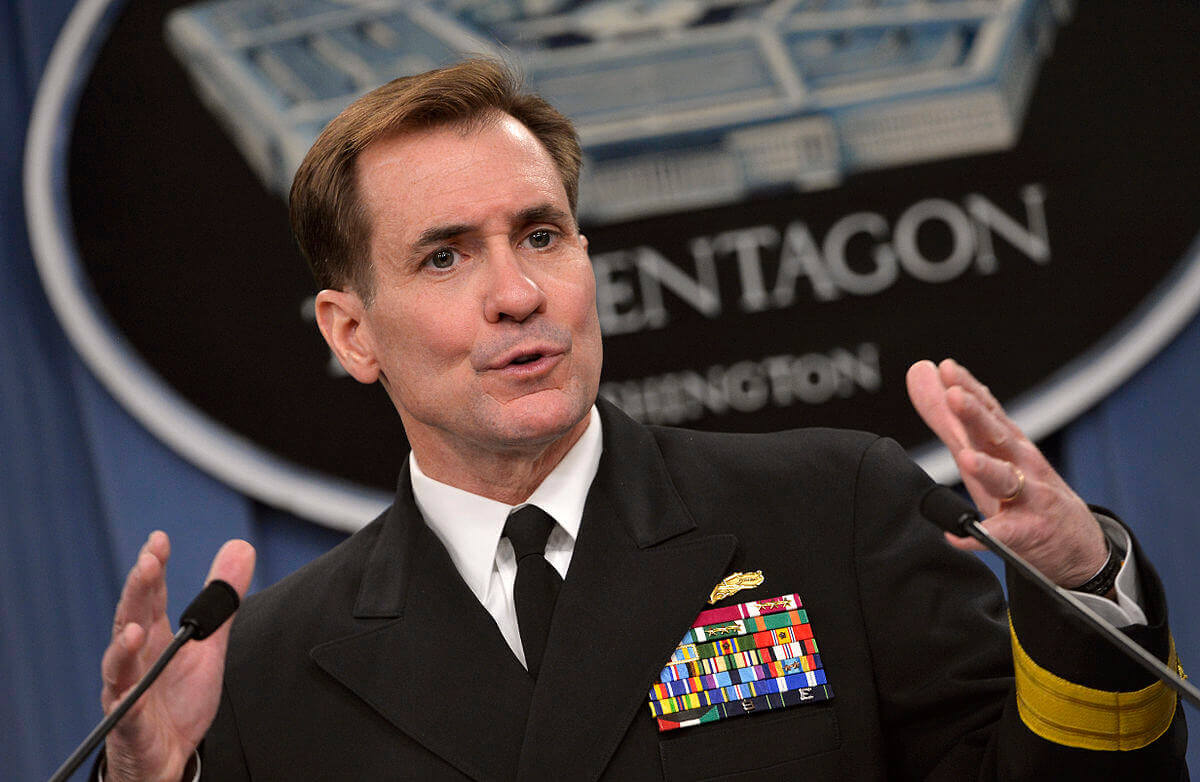Pentagon Press Secretary John Kirby released a statement today saying that the United States (US) had “conducted airstrikes against infrastructure utilised by Iranian-backed militant groups in eastern Syria”.
The Department of Defense statement read: “These strikes were authorized in response to recent attacks against American and Coalition personnel in Iraq, and to ongoing threats to those personnel. Specifically, the strikes destroyed multiple facilities located at a border control point used by a number of Iranian-backed militant groups, including Kait’ib Hezbollah (KH) and Kait’ib Sayyid al-Shuhada (KSS).”
Describing the strike as a “proportionate military response”, the Pentagon said that it was “conducted together with diplomatic measures, including consultation with Coalition partners”. The statement ended by declaring: “President Biden will act to protect American and Coalition personnel. At the same time, we have acted in a deliberate manner that aims to de-escalate the overall situation in both eastern Syria and Iraq.”
At this stage, it is thought that six militants were killed in the strike.
It has been speculated that this could be in retaliation to rocket attacks on a US military base at the Erbil International Airport in the Kurdish region of Iraq on February 15. One foreign contractor was killed, while one US service member and a number of US contractors were injured. A few days later, US forces were once again attacked just north of Baghdad. Furthermore, on Monday, the Baghdad Green Zone, where a number of diplomatic missions, including the US’, are based, sustained rocket attacks.
Following the attack in Erbil, White House Press Secretary Jenny Psaki warned, “We do hold Iran accountable for the actions of their proxies. And, of course, we reserve the right to respond in a manner and at a time of our choosing, but we will respond in a way that’s calculated, on our timetable, and using a mix of tools seen and unseen.”
In addition, the foreign ministers of France, Germany, Italy, the United Kingdom (UK) released a joint statement with Secretary of State Antony Blinken that said that “attacks on US and coalition personnel and facilities will not be tolerated”.
That being said, the Kataib Hezbollah has denied its involvement in the recent attacks in Iraq. In fact, a Shiite militant outfit called Saraya Awliya al-Dam (meaning Guardians of Blood Brigade) has since claimed responsibility for the February 15 attack. Iran, for its part, has denied any links to the Saraya Awliya al-Dam.
This is not the first strike the US has made on the Kataib Hezbollah. Last March, in response to 18 rocket strikes on coalition military base Camp Taji that killed two Americans and one Briton, the US retaliated on Thursday by launching airstrikes against the Iranian-backed militia group in Iraq.
In fact, under the Trump administration, tensions between Iran and the US reached unprecedented levels. In December 2019, an attack on the K1 Military Base in Iraq’s Kirkuk province killed one US civilian contractor. Following this, the US struck five Kataib Hezbollah bases in Iraq and Syria.
The situation reached a boiling point on January 3, 2020, when a US drone strike killed Iranian military commander Qassem Soleimani and Kataib Hezbollah’s head, Abu Mahdi al-Muhandis. In the aftermath of the drone strike, Iran launched a ballistic missile attack on the Ain al-Assad and Erbil bases, both of which have US personnel. Soleimani held close ties with Muhandis’ Kataib Hezbollah, and ordered the group to “carry out rocket attacks on Americans house at Iraqi military bases”, arguing that the group “would be difficult to detect by the Americans”.
The latest string of attacks on US personnel and facilities worryingly seems to be precipitating a similar situation to what occurred last year, when Soleimani’s killing pushed Iran to vow retaliation. Although the US’ retaliatory strike in Syria was not on the Iranian military, it is expected that Tehran will respond aggressively to the US’ suggestions that Iran was behind the recent attacks in Iraq.
US Conducts Airstrikes Against Iranian-backed Militant Groups in Syria
Describing the strike as a “proportionate military response”, the Pentagon said that it was “conducted together with diplomatic measures, including consultation with Coalition partners”.
February 26, 2021

IMAGE SOURCE: DEPARTMENT OF DEFENSEPentagon Press Secretary John Kirby
